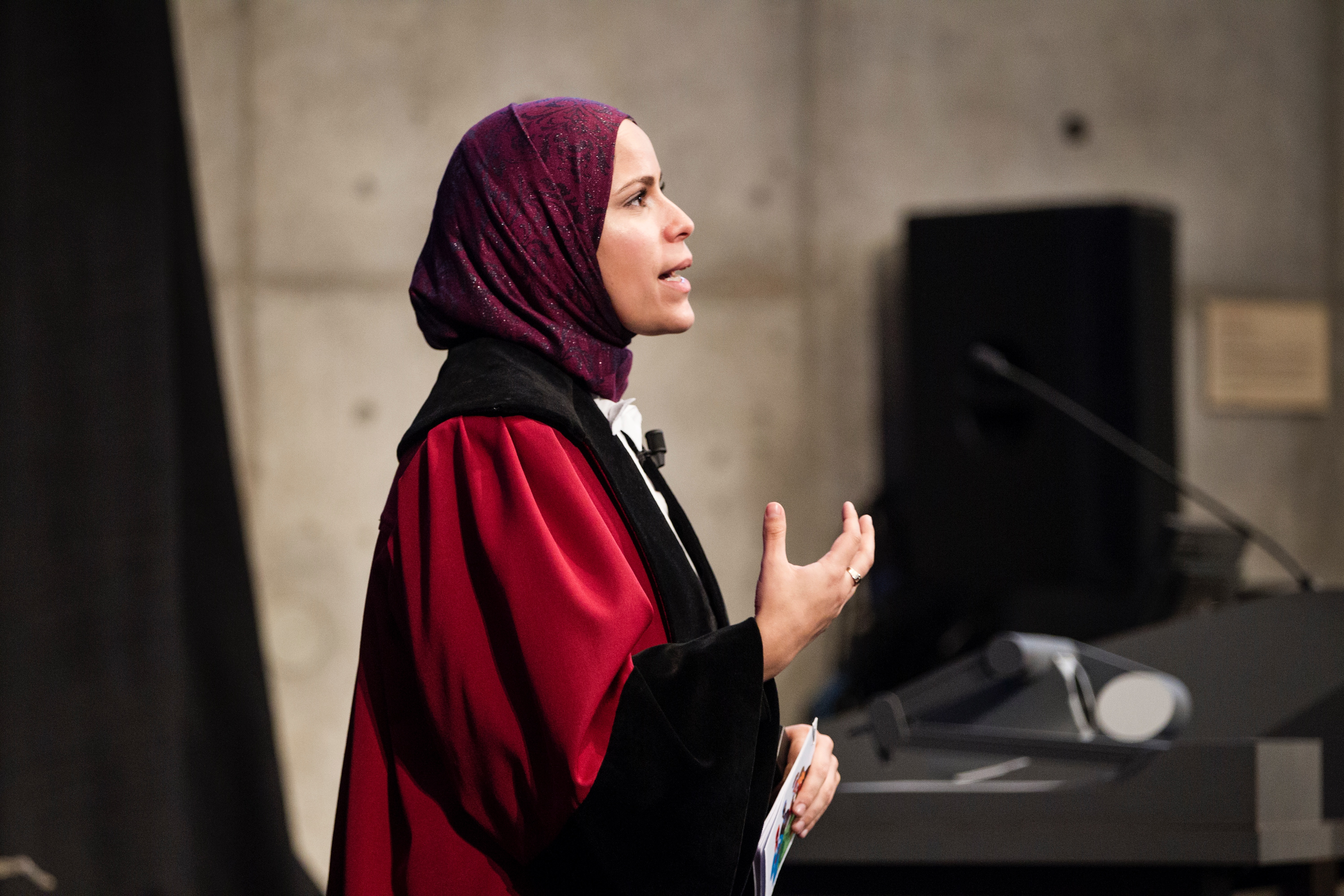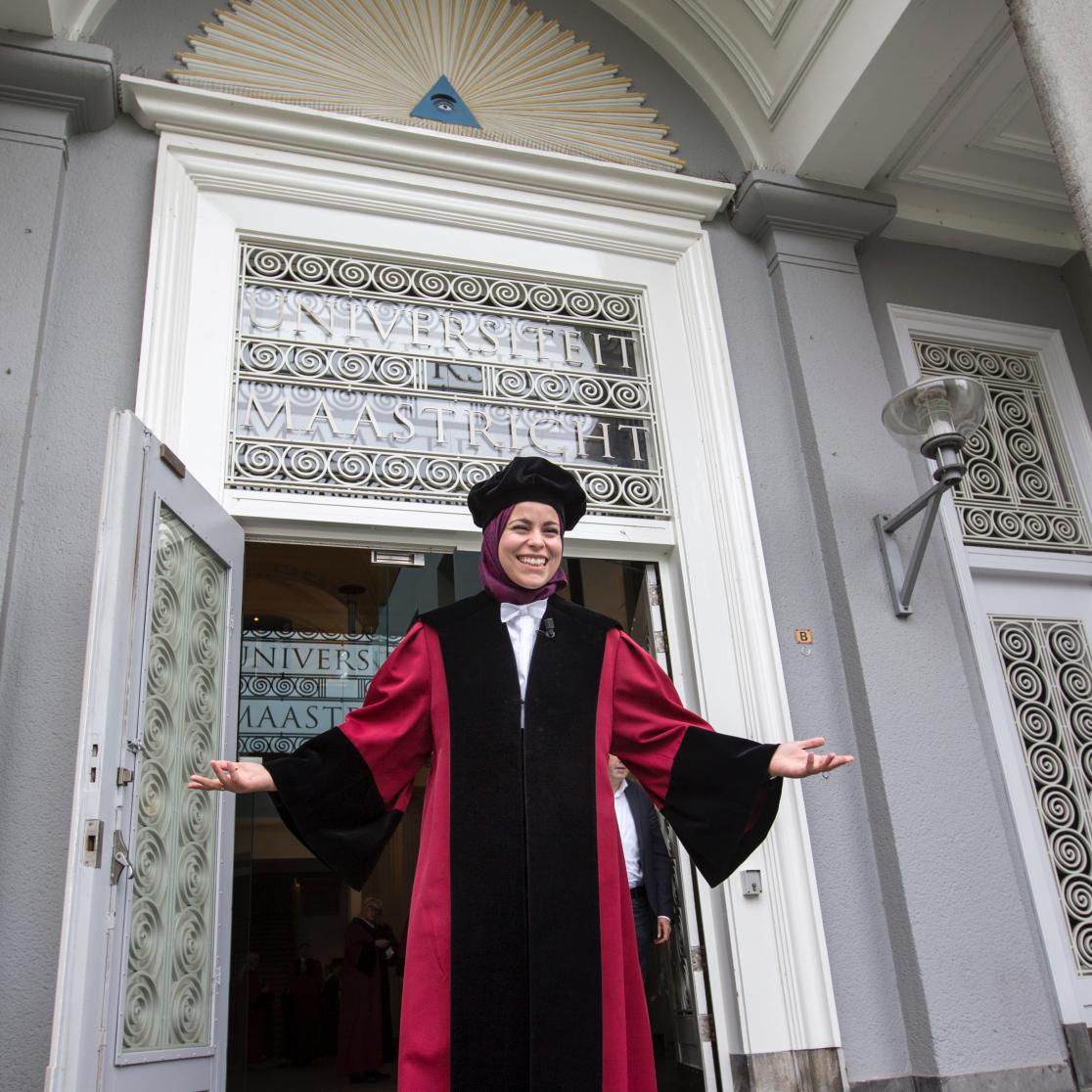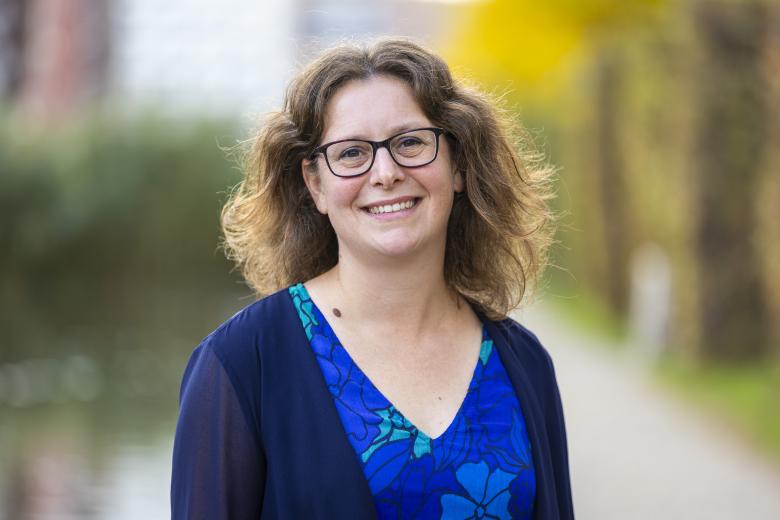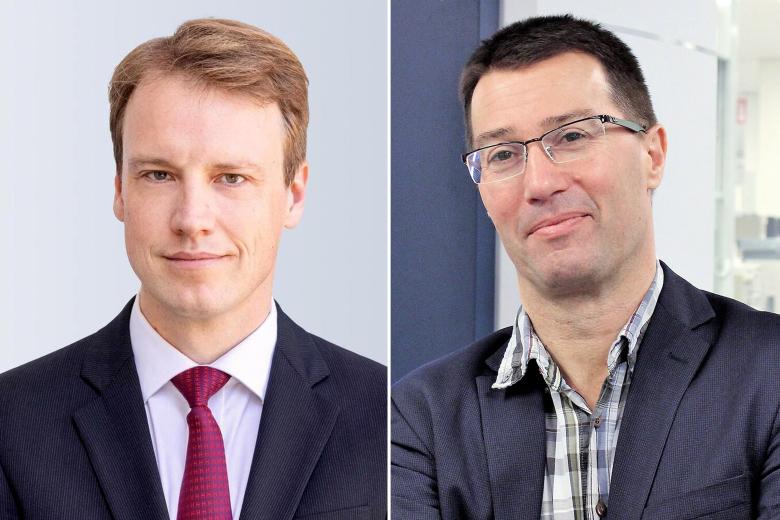"Policies fail when they're not inclusive"
She is a physician, PhD candidate, one of the United Nations’ 17 Global Sustainable Development Goals Advocates and the UN High-Level Commissioner on Health Employment and Economic Growth. But above all, Alaa Murabit (27) defines herself as a leader. On 4 September she gave the keynote speech at the opening of the academic year 2017/18 in Maastricht.
It’s the eve of the official ceremony and Murabit has just arrived at her hotel in Maastricht’s city centre. She flew into Amsterdam Airport Schiphol this afternoon and has been awake for 33 hours, but it doesn’t show. She speaks with the same passion as she did in 2015 in her internationally lauded TED talk, ‘What my religion really says about women’.
She has a clear message and is an experienced public speaker. During the interview Murabit tells us about her three goals in life. “Choosing this path meant I no longer had the time to work as a medical doctor, and I loved that profession. So I had to define very clearly what I wanted to strive for.”

Three goals
“My first and foremost goal is to live in a world where young girls don’t question their ability to be leaders, and they seek out leadership roles regardless of their location, colour or nationality. My second goal is universal healthcare. This claim that healthcare is not a right – I genuinely think it’s selfish. Finally, to achieve these first two goals – getting more girls and women to be change-makers and business leaders, and gaining universal healthcare and access to reproductive rights – there needs to be unquestionable quality and quantity of education. And I worry that this is the most difficult for us to achieve.”
The Malala Fund
Education was the central theme of her keynote speech, ‘How pencil and paper lead to peace and prosperity’. Without detracting from the benefits of formal education, she stressed the importance of informal education. “With that I mean the life experience you get from taking a leading role, working with partners or having to wake up early to go to school. Those are all things that prepare you for the world.” Murabit is also a board member of several organisations, including the Malala Fund. “We work in many countries where people don’t have the opportunities you have at places like UM. But even in those communities it truly is just a pencil and paper that can transform entire lives. Kids can sit outside and still do incredible work. We’re shifting into this new global reality, where people who haven’t had the benefits of a traditional education rise to positions of leadership and authority.”
Also watch Alaa Murabit's TED Talk, released in July 2015, “What my religion really says about women” . It was selected as the 'TED Talk of the Day' and 'one of four moving TED Talks you should watch right now' by The New York Times.
An impression of the whole day can be found on this website.
Mum as role model
“My dad always says, ‘The school doesn’t make the student, the student makes the school’. I learned negotiation skills at home, together with my 10 brothers and sisters. That was a form of education.” After finishing high school in Canada at the age of 15, she moved to Libya, where her parents came from and her mother had been living for a year. Murabit’s mother is her role model. “A lot of people think of a leader as the CEO or the president. But my mum kept a family of 11 operating like clockwork. To me that was leadership. Also her recognition that every child has different aspirations.”
Growing up, the boys and girls were treated equally. It was only when she got older and more ambitious that she experienced something different. “Many of the professors in medical school made the assumption that I wouldn’t actually practise medicine. That was frustrating, but in retrospect I don’t think there’s a single country where gender discrimination is not an issue. In most of the world women are underrepresented in the formal working sector and engaged more in informal work, where they put themselves at significant risk to support their families. Even when women do work in formal employment, the pay discrepancy is startling. In the US, a ‘mature democracy’, a white woman earns 73 cents for every dollar earned by a man. For black women that drops to 60 cents and for Hispanic women it's less than 55 cents.”
Surveys show that putting women at the table, in boardrooms but also in peace negotiations, is the key to more sustainable solutions. “Girls’ education and women’s reproductive rights are the number one practical solution to climate change, as Paul Hawken showed in his impressive study on climate change, ‘Drawdown’. We invest so much money in processes that are failing, we know why they’re failing, we know how to stop them from failing, and we just don’t. Policies fail when they are not inclusive. You can’t have just a small fraction of people represented to create policies for the whole. With only men at the table we will only keep repeating past mistakes.”
Lesson learned
Murabit has learned that change will take time. “I once had an interesting conversation with my extended family in Libya. One of the women felt very insulted by what I was saying about gender equality. She said: ‘You’re saying the way I was raised and how I’ve raised my daughters is wrong’. I think that’s when I realised. When you ask people to make fundamental social changes, you’re challenging everything they believe in, and that’s hard. Imagine somebody telling you that women shouldn’t work, that your daughter shouldn't lead! That probably challenges every notion of what you think is acceptable.” Coming from a scientific background, she figured that if you show people the numbers, they will understand. “That’s how you convince me. If you show me legitimate numbers I’m pretty easily persuaded, and I just assumed everybody else would be the same. They’re not. We need to actually sit down and listen to one another, something that's becoming harder and harder given our political climate. But the only way to move forward is by working together. There are nearly eight billion people on this planet and last I checked we didn't have another one to go to. If we want to succeed, if we want a prosperous, peaceful planet, then we need to listen to one another – and get more seats at the table.”

Alaa Murabit (1989) is a Libyan-Canadian physician and leading international advocate for inclusive peace processes. She is a UN High-Level Commissioner on Health Employment and Economic Growth and one of the 17 eminent personalities appointed by the UN Secretary General as Global Sustainable Development Goals Advocates. Murabit is currently a PhD candidate in Leadership and Security at King's College London.
Also read
-
Vote for UM Professor Gera Nagelhout as Vrouw in de Media
The Limburg jury of the Vrouw in de Media Award has selected UM professor Gera Nagelhout (CAPHRI) as a nominee for the Vrouw in de Media Award 2025. The award highlights women who, over the past year, have been notably and impactfully visible in the media as experts.
-
Two UM professors appointed member of Royal Holland Society of Sciences and Humanities
The Koninklijke Hollandsche Maatschappij der Wetenschappen (KHMW; Royal Holland Society of Sciences and Humanities) is the oldest learned society in the Netherlands.
-
Heated tobacco products also harmful to health
NUTRIM researcher Alex Remels explains in Dutch consumer TV programme Kassa how heated tobacco products are not a safe alternative to cigarettes.